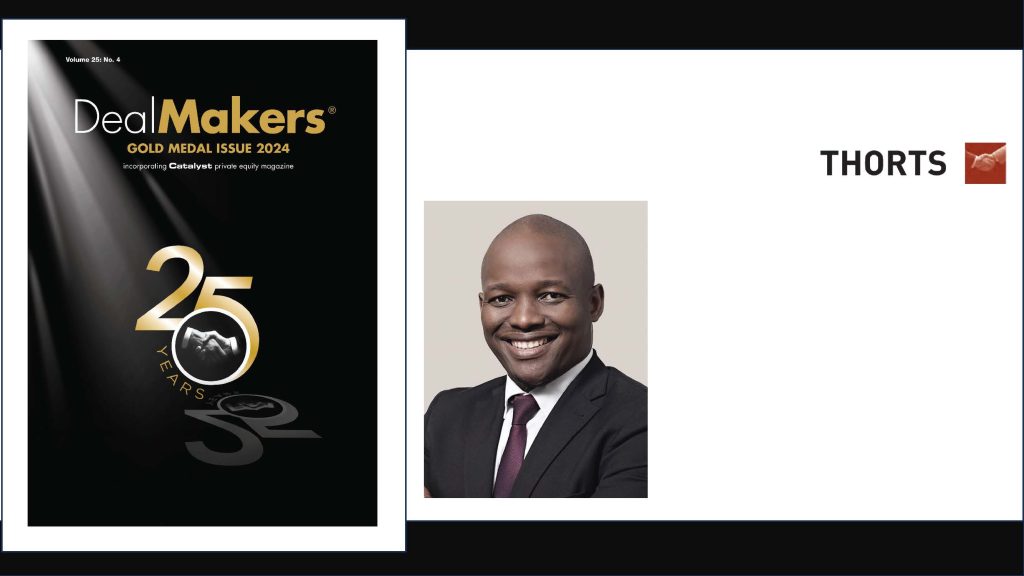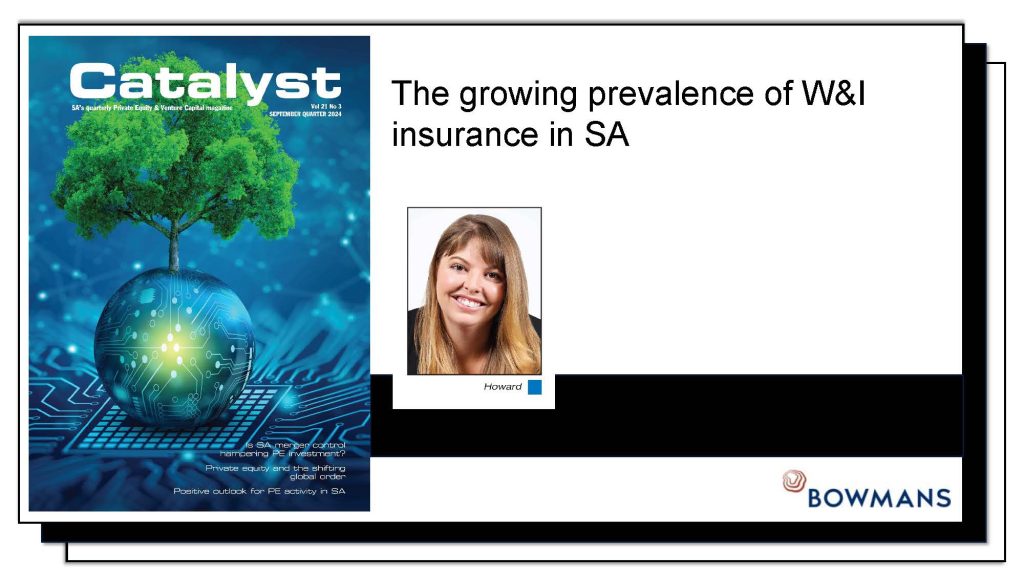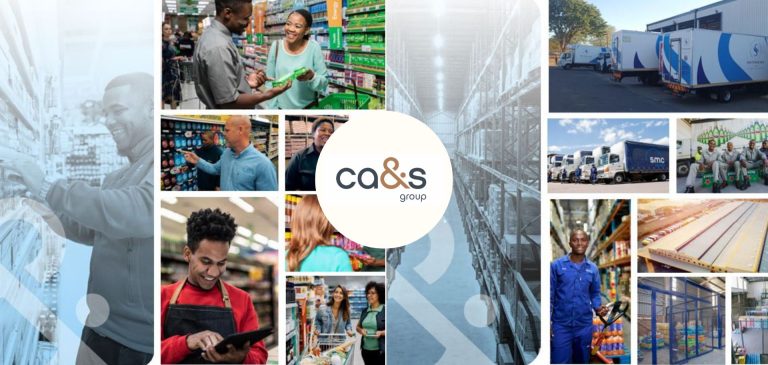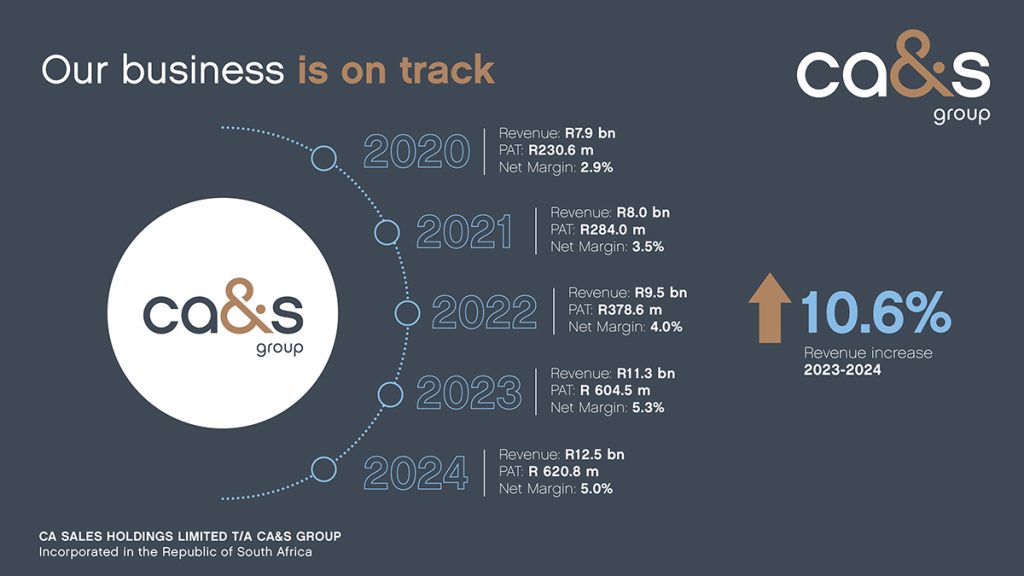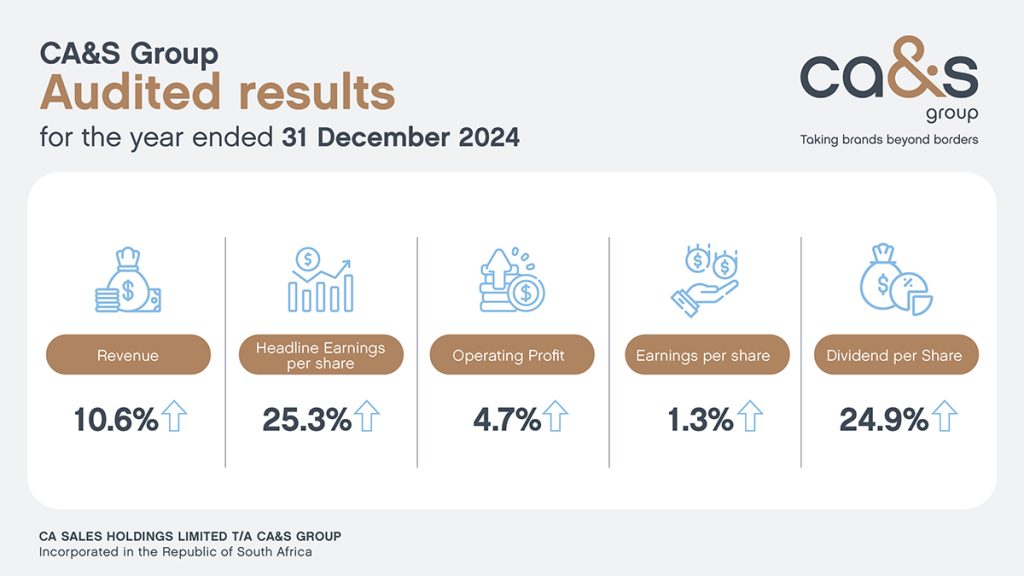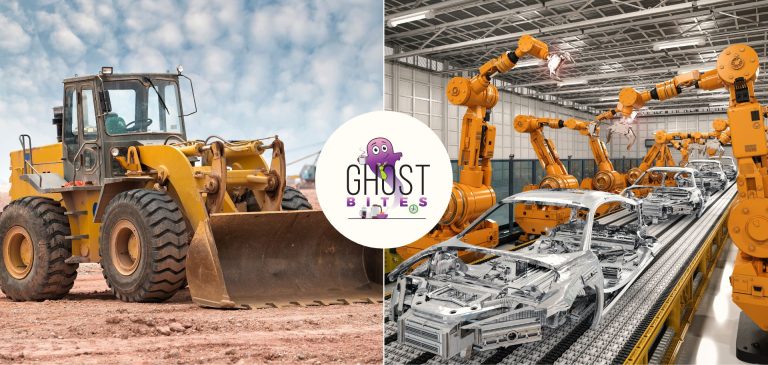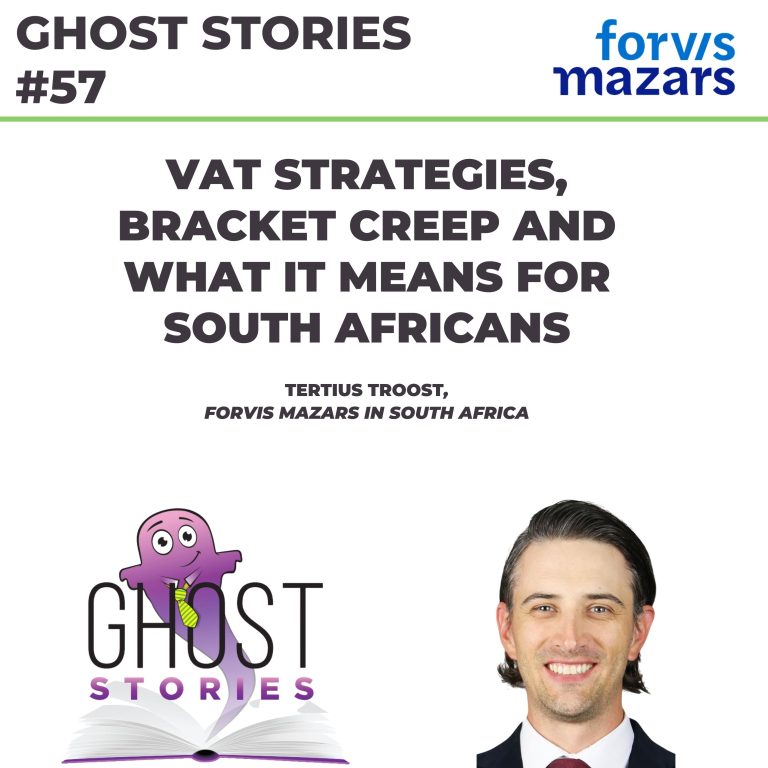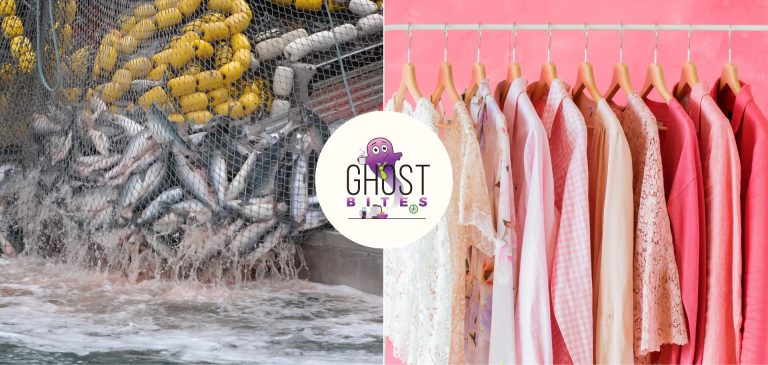Listen to the show using this podcast player:
With the dust having settled on the Budget Speech and the proposals that parliament will need to vote on, Tertius Troost of Forvis Mazars in South Africa joined me to reflect on the key drivers behind the headlines.
VAT has been the focus area, but is it true that a VAT increase is anti-poor? And is it correct to rebut the “South Africa has a small taxpayer base” argument by pointing out that everyone pays VAT?
What is bracket creep and how does it affect middle-class South Africans?
Perhaps most importantly, what was not said in the Budget Speech?
This podcast is a great way to make sure you are on top of the key drivers behind the fiscal strategy in our country.
Full transcript:
The Finance Ghost: Welcome to this episode of the Ghost Stories podcast. And yes, we are going to be talking about the budget, the South African budget, goodness knows you’ve seen plenty of that in the media over the past few weeks.
We were kind of waiting for the dust to settle a little bit to see if anything changes and if anything else comes to the fore about how it’s all going to get approved etc. The headlines do keep flowing on what the process is going to be and there’s really been a lot of noise. I think what’s going to be great on this podcast is we’re going to cover some of the most important things that have been in the headlines and been a factor in this budget.
We have a genuine expert with us to do it. You’ve heard from him before. We did a budget speech podcast last year. That is Tertius Troost. He is a senior manager in the tax consulting team at Forvis Mazars in South Africa.
Tertius, thanks so much. It’s great to have you back. Really enjoyed having you on the podcast previously and I’m looking forward to getting your views on this budget speech and its aftermath because it hasn’t quite been like it’s been in the previous years, has it? Where the thing just sails through? We are in a GNU environment now.
Tertius Troost: Yeah, brilliant. Thanks so much for having me back. I’m looking forward to the chat again. I think last time I also said that during this time, tax people are rock stars. Once again, this one is a lot more tax-focused than some of the previous ones. There are many questions that have arisen from this budget. Looking forward to the chat.
The Finance Ghost: Yeah, absolutely. Look, you’ll never see tax in the headlines quite as much as at this time of year. Suddenly everyone wants to understand more about that and everything else. It’s a very emotive thing. No one wants to pay more tax, everyone wants to pay less tax. That is the great truth about all of us, really. But we need to fund the country and that’s of course where the balance comes in.
That has been the focus area of this budget. If we look through everything, the war seems to be fought around VAT for whatever reason, this is what was chosen as the hill to die on by the various politicians. I think let’s maybe start there and let’s maybe get an understanding of how important that is to the overall budget. How much money are we getting from VAT versus other sources, for example? Why is VAT so important?
Tertius Troost: Yeah, so that was definitely a significant focus of this budget. Just to understand the importance, like I said, you need to look at the numbers. VAT accounts for approximately 26% of the total tax revenue that SARS collects. So to put that in a number, SARS is expected – the year-end is the 31st of March coming up – to collect about R1.863 trillion in taxes. Of that, R477 billion is just from VAT alone. This is the second highest contributor to the fiscus, only outshone by your personal income tax take, which accounts for about 40%. Then the final, which we usually refer to as the top three, is the corporate income tax, which accounts for approximately 16%, so that one takes third place.
When you look at those top three income streams, they account for 81.5% of all tax revenue. This just shows how crucial VAT is in the budget component. Like I said, making up 26%, it’s a significant sum.
The Finance Ghost: And it’s a bit easier to get a change across the line here because you’re not introducing a new tax, you’re just tweaking the rate. It’s not like saying, oh, we’re going to put a wealth tax in place, and now aside from the huge political fallout that is almost guaranteed, you’re also going to have all the stuff around the legislation for what this tax looks like and you need to amend the Act and then you need to think about how it interacts with all the other taxes. That doesn’t happen overnight.
But with VAT, all the legislation is there. It’s literally just saying, well, now the rate is a little bit higher. Right? That’s got to be one of the reasons why it’s been a focus area as well?
Tertius Troost: 100%, and it’s like you say, it’s an easy change. Businesses have gone through this back in 2018 when we had the change previously from 14% to 15%. It’s just systems that need to be updated and then it pretty much pulls through to the economy. What’s always interesting is it doesn’t necessarily pull through immediately, but it does pull through over the course of time as prices increase according to the VAT rate increase.
The Finance Ghost: Yeah, exactly. And you talk about how important VAT is and I see this argument online a lot where people talk about, oh, there’s very small tax base in South Africa. We have a very small number of taxpayers supporting a lot of people. And inevitably it is higher income earners who are trying to point that out because they’re angry about the way government has been doing things and they’re saying, well, I pay a lot of tax, I’m supporting a lot of people. You know, why is it like this?
And then one of the frequent counter-arguments that I see online is people saying, well, the definition of taxpayers is actually much broader than that because anyone who goes to the store and buys something through the formal market that they’ve paid VAT on is technically paying tax.
Now, both those arguments I think are correct, right? But the first person is arguing about income taxpayers and the second person is saying, well, if there’s a general uplift in economic activity and more people are buying stuff, full stop, there are more taxpayers. It’s an interesting argument, but I guess the way to maybe unpack it a little bit more is to say, what is the concentration within the VAT base? Is it the same story where you see most of the VAT paid by a relatively small number of taxpayers? So, you have almost the same problem you have in income tax?
Tertius Troost: Yeah, I actually read a very interesting statement in the budget review document. This is a document that is released along with budget. It’s quite a substantial document that deals with how they will be spending, how they will be collecting the taxes. And one of the things that jumped out at me was that they state that 75% of the total tax collected is from the top four expenditure deciles.
Now let’s just take a step back. What they refer to as an expenditure decile is where they divide the population into 10 groups based on their spending patterns. Each decile represents about 10% of the population where they’re spending from highest to lowest.
It might be an obvious statement saying that okay, the more people spend, the more they contributed to VAT. But just looking at it and taking a step back and saying that three quarters of all the VAT is collected from the top spenders, which usually equates to your top earners. It just once again points out that, okay, we need to think about the wealthy in the country and just looking at that tax base specifically because they are still not only contributing in the form of personal income tax with higher rates, but also in their spending in indirect taxes.
And I mean indirect taxes like VAT, also aspects like transfer duty on home ownership. There are a lot of taxes that are collected in different forms. It just talks again to this fact about even though that rate does affect the poor because they have less money to spend, they will feel that pinch bit quicker, the wealthy are just spending more which relates to a bigger tax take from them when it comes to that.
The Finance Ghost: Yeah, not only are they spending more, but they’re spending on taxable things, right? So if you think about the average, on the bread line South African earning R6,000 or R7,000 a month, doing one of the many jobs that can pay you that kind of number in South Africa, a very high proportion of that amount is getting spent on transport, which inevitably is taxis where you’re lucky if there’s income tax. There’s definitely not any VAT.
Then there’s a lot of purchasing of basic foods. There’s inevitably payment of rent which is often a room in someone’s house or that kind of setup. Again, no VAT. So, of that amount, it’s actually a very small proportion of that salary is being spent on VAT-able items as opposed to when you go into middle-class and certainly elite South Africa, they’re just paying VAT on most of what they’re buying actually. As opposed to such a small piece. Right?
Tertius Troost: Most definitely. You’re talking about taxis, the transport of people is an exempt supply. So there’s definitely no vat. Then rent, again, same story. So it is a fact that when you’re looking at what people are spending on and what the wealthy are spending on and if you look at once again the zero-rated items, the wealthy don’t necessarily just spend on zero-rated items, they spend on a range of things. It’s definitely much larger tax take from them.
The Finance Ghost: Having said that, the zero-rated mechanism, it’s good, but it doesn’t also completely buffer the poor from the impact of this. That’s what’s been interesting to see play out politically is that this VAT increase has very much been portrayed as anti-poor. I don’t want to call it pro-rich because no one wants to pay more tax, but if anything it actually sounds like it hits the rich more than it hits the poor.
I think the difference is the poor literally cannot take on any additional pressure, whereas in a wealthy household it’s like, oh, darn, our groceries are a little bit more expensive. We can’t go out an extra time this month, cry me a large river. But in reality it is irritating for those people and they are creating jobs and they want to live in a country where they don’t feel like they’re being fleeced. So the “cry me a river” approach also very quickly leads to people emigrating and paying less tax and putting more pressure on the poor. None of those approaches work. You’ve got to have a decent balance.
But is the VAT increase actually anti-poor? Are there mechanisms that they’re trying to get in place to actually sort that out? I’ve got to tell you, I don’t hate the narrative purely because I want pressure on government to reduce spending. And I feel like the only place that pressure will come from is if their policies are seen as anti-poor. It feels like that’s how it’s going to happen. But be that as it may, how true is this and what are they doing to mitigate it?
Tertius Troost: Yeah, the narrative of VAT being anti-poor is a common one. VAT is a form of a regressive tax, so it does take a larger percentage of the income of lower income earners than high income earners. In other words, the poor will definitely feel a VAT hike more quickly than the rich would. That’s probably why it has received this tag of being anti-poor.
This budget did try and alleviate some of the effect of the VAT rate increase by adding certain items to this zero-rating list. But interestingly, in Treasury’s own words, once again in this budget review document, the zero-rating is sometimes what they refer to as a “blunt tool” because when assisting low income households, there’s no guarantee that this price reductions will flow through to the actual consumer. If I give an example. So we’re looking at the additional Items being added 1 May when the VAT rate increases slightly. But if you think about it, retailers aren’t going to drop the prices immediately with 15%, you won’t see a 15% reduction on the shelf. There will be a period of some of the items maybe becoming slightly cheaper, maybe they added to a special every now and then. There will be a period of retailers taking a slightly higher profit until it settles in, until your economics just flows through to it.
Then at the same time, whenever you add items to a zero-rated list, the definitions of these items are extremely important. There’s always a interesting case, it’s actually a UK tax case way back in 1991, where the UK courts had to rule whether a Jaffa Cake is actually cake or biscuits just based on the definition. In the UK cakes are zero-rated, but biscuits are subject to VAT.
The Finance Ghost: That’s hilarious, actually.
Tertius Troost: It’s quite interesting. Yeah, you’re reading about learned judges having to debate the difference between cakes and biscuits.
The Finance Ghost: I can just imagine on the witness stand, you’re getting a baker in there, someone’s granny who’s been baking for 30 years. She’s got a strong view on whether this is a cake or a biscuit. Ask 10 toddlers. No, it’s lovely.
Tertius Troost: They’re looking at aspects like how it looks when it becomes stale, what’s the shape, what’s the size? Yeah, it was interesting.
The Finance Ghost: That must have been hysterical to follow.
Tertius Troost: But going back to South Africa, we’ve actually seen the draft legislation of the items that they’re looking to add. And initially in the Budget speech, the Minister alluded to zero-rating canned vegetables, which is a broad statement. But when we look at the actual legislation it seems to be limited to only peas and beans that are in cans.
So once again, that definition gets much narrower than we initially thought. And then at the same time, when we’re looking at the other item added of offal and we know that the chicken industry has been lobbying treasury tirelessly trying to get chicken added to the list. But now we’ve got this where chicken, only the heads, feet and giblets of chickens are added, but at the same time something like that within a soup mix is excluded from the zero rate, so it’s still subject to VAT.
These definitions are so important and you will find that all business will try and get in them, trying to make the items more cheap, just getting it slightly cheaper and thereby increasing sales. But it’s a very interesting space when you look at these definitions of the zero-rated list.
The Finance Ghost: Yea, look, this government has a dubious relationship with Woolworths cooked chickens, so we’ll wait and see if they do anything specific there. I don’t think we’re going to see a zero-rating on chickens for the rich, unfortunately. But it is super interesting. And of course why they have to be so careful is because of the possibility of VAT fraud, right? I mean, that’s the magic of zero-rated items. You can still claim that if you are producing that stuff versus exempt – scratching back in my brain now for my varsity days on tax, it’s been a while..
Tertius Troost: Well done.
The Finance Ghost: But I mean, that’s the risk, right? So if you can claim that what you are selling is zero rated, you can suddenly have a very different life. To your point, it doesn’t mean you’re putting your prices down. It just means you’re not necessarily paying across any VAT anymore on the same selling price.
Tertius Troost: You’re 100% right. A zero-rated item means that the input VAT or the expenses that you incur in order to produce the product, you can still claim those and usually that can result in a form of refund because you don’t have any output VAT when selling the item. That’s where most retailers want to be, or wholesalers or producers want to operate.
I won’t necessarily say it’s fraud. I think it’s just sometimes it’s a very – looking at the definition and trying to get as much into it as possible because of the benefit attached to it. It can lead to higher admin costs by SARS now needing to close certain loopholes or they have certain court cases trying to just bed down these definitions. Usually in the past, the definitions I think initially back in 2018 we had a list of 19 items or so and it was pretty clear what they were just basic foodstuffs. But now as they’re adding items, you can see how people start interpreting.
I mean another very interesting – and this was in last year’s budget they mentioned that – we know that fruit and vegetable is zero-rated, but then we have – you were talking about Woolies earlier – if you go to Woolies you sometimes get vegetables that have been chopped up and they are in a little bag and you just cut off the corner and you give two minutes and it steams and it’s perfect. That’s actually prepared vegetables. Then SARS said but we don’t want prepared vegetables in that list and they would actually remove that out of the list. So now you’re going to have a case where it’s fruit and vegetables are still zero-rated but then if they’ve been chopped slightly or have some form of little dressing on it then it’s subject to VAT. It’s a very interesting space.
The Finance Ghost: Yeah, it is. I think let’s move on from VAT for now. Our parents warned us about a lot of creeps in our lives and staying away from them but unfortunately bracket creep is the one we can’t get away from. This is an income tax problem and this is the one that hits the middle class, I think, the hardest.
This is basically just the complete lack of inflationary increases in the tax brackets. For those who don’t understand it properly or maybe aren’t familiar with it, your income tax works on a sliding scale and obviously the next tax rate – and by the way, people make this mistake all the time – they say, I’m going into a new tax rate now. I’m actually going to earn less even though I’m earning more! No, the incremental amount will be taxed at the higher rate. You’re not suddenly worse off because you got a raise from your boss. So, calm down.
But what should happen every year is the brackets, the point at which a specific tax rate comes in, should be going up by inflation because otherwise what’s happening over time is that you’re getting increases in all likelihood and so your effective tax rate actually just keeps going up on that salary because you are not getting any relief. What should happen is if you just get an inflationary increase, you should not be paying a higher overall tax rate. You should just be sitting in the brackets the way you always have been. It’s a very, very, very stealthy way for the government to keep taxing us more and more. This impact becomes severe over several years, right? You’ve looked at this as well. I can see why government loves doing it because it’s a very sneaky way to keep increasing taxes.
Tertius Troost: Yeah, I think as you mentioned, when bracket creep was first introduced, when they first did it, it was a very stealthy way of increasing tax revenue. And many of us in industry had to sit down and really understand the impact and how we can explain it to the public because it takes the concept of inflation into account, which is sometimes not understood by all. I think we tend to understand that.
So if I take a very basic example and please ignore all kind of tax principles, it’s just using R100, don’t come at me about with rebates. But if we use, let’s say you earned R100 last year and you paid R30 in tax, you’ve got R70 left for your normal living expenses. Now, some of the misconceptions might be – let’s say it’s a year later, there’s been no relief on the tax brackets and you still earn R100. That means the tax is not more, it’s still R30 and you still have R70 after-tax money to spend. But what you have found is that all the things that you’re spending your money on have increased due to inflation and therefore you’re in a worse position. Therefore, you would have wanted to have your tax tables take that into account, so that when you have your after-tax money, you’re actually in the same position in a case where you for example, don’t get any increase in your salary.
Obviously as you get increases in salary and there’s no increase in the tax tables, it just ends up with something on your effective tax rate. That’s where if you run the numbers, let’s just take a very basic amount or someone that earned R200,000 back in 2015, if they were to increase, if the tax that they would have paid at that date would have been effective tax rate of 12.1%. Now I did the calculation aside, you don’t have to. Then if we take that and we just increase their salary by inflation, that means 10 years later, now in 2025, they should be earning just shy of R320,000 a year. That means they’re in the same position as they were 10 years ago. But all of a sudden the tax take or the effective tax there is 14.65%, so there’s been an increase. That’s the effect that bracket creep has on the actual people paying personal income tax.
The Finance Ghost: Yeah, exactly. As you say, there are two ways to understand it. One is you get these inflationary increases and hence your average tax rate goes up. The other way, which is interesting, is to say if your salary stayed exactly the same, then if there was relief in the brackets, you’d actually have more take home pay as a result. But because there’s no relief, you don’t. So yeah, very effective little trick there by government. They love it. I doubt we’re going to see it going away given where South Africa’s fiscus is. Bracket creep is going to be creeping around the corners for a long time unfortunately.
So, we’ve done VAT, we’ve done a little bit of income tax. The other thing I want to ask you about is corporate tax. We’ve been at a higher rate before. I remember when the rate dropped, it was several years ago. Isn’t it easier to just lop another 100 basis points on top of the corporate tax rate? Take us back to where we used to be? Or is our corporate tax rate actually quite onerous benchmarked against other countries and that’s why it’s a difficult one for them to do? Because that feels like one of the easier ways to do it, right?
Tertius Troost: Yeah. I mean similar to the VAT rate increase, a change in the corporate tax rate is once again just a change in the rate. It is easy to administer. But in an environment where globally most countries are actually reducing corporate income tax rates, trying to attract investment, it would not be wise to increase it at all. Another thing that stood out once again in the budget review document is that South Africa is ranked 13th of 123 countries when it looks at the share of corporate income tax rate to the share of GDP. It’s highly reliant on the corporate income tax rate where other countries actually don’t rely on that so much because they just want people to invest there, bring people there, get taxes and other forms of personal income tax or VAT and actually don’t rely on corporate income tax rate that much.
And the other aspect that South Africa needs to bear in mind is our corporate income tax rate or collections from it is very volatile because it is heavily dependent on commodity price cycles as you are well aware and just economic growth which we’ve not been seeing in the past number of years. So no, increasing that rate is definitely a non-starter or something that they should not be looking at there.
The Finance Ghost: Dare I say, it’s a pro-growth policy there to not increase that rate. Imagine seeing a pro-growth policy! No, it’s cool. That makes a lot of sense and it is good to see. Those are very good arguments because if you are encouraging investment, that’s creating jobs, that’s more people paying PAYE, it’s more people buying stuff and paying VAT and that’s exactly the multiplier effect that you need to see coming through the economy. That’s where we’ve been lacking, unfortunately.
I think in these budget speeches and actually in anything in life, you often learn as much from what was not said as from what was actually said. As we start to bring this to a close, what were the deafening silences for you in this budget speech? What was not said?
Tertius Troost: Yeah, it’s one of the items I really like looking at, is what was left unsaid. What I always find interesting is there’s never a word about NHI in the run up to budget. In periods outside of the actual budget speech, you always hear the Minister of Health talking about NHI and how it’s going to be implemented. But when it comes to the actual figures, you don’t read a single word of it because it can’t be afforded by the fiscus.
What was even more alarming is once again about three weeks prior to the budget there was this whole – the media was talking a lot about this transformation fund, R100 billion that they’re going to get from another levy on corporates. But when it came to the actual budget speech, there was literally not a single word stated about that because once again, you can’t levy – a levy is a form of tax, so you’re going to be just taxing your corporates again. Once again as I’ve just stated previously, we can’t afford that.
And then during the time between the initial budget in February and then the actual budget on 12 March, some were alluding to well, is Treasury maybe looking at a wealth tax and we know that the problems we have with the wealth tax – just the definitions would be how to value certain private companies, what it would do to your actual tax base. Maybe you find that your higher earners would then leave the country. You’ve seen internationally that many countries that actually had a wealth tax did away with it. So once again a non-starter, no mention of that in the budget.
Finally, there were a number of rumours about the relationship between the Finance Minister and the Commissioner, Edward Kieswetter and it seems fine. Edward Kieswetter wanted additional funding saying that he could obtain significantly more from the tax base, but I think the figures that he made were just quite remarkable. I don’t think it’s really achievable but once again, nothing was stated about that. I think the relationship is sound. They’re each working on their own part – one with policy and one with administration and collection. I think it’s just that everyone keeps to their line and does their job, that’s what the country requires.
The Finance Ghost: Yeah, “hot mic” incidents aside, I remember seeing those headlines and that was a bit of an awkward one. It has been a very interesting budget speech process. This is the GNU playing out, right? That’s what’s changed. It’s just not so easy anymore. Government can’t just wake up and do whatever they want.
Certainly, from my side what I hope to see is that instead of continuously trying to just get more money, that there’s actually some introspection around spending cuts and finding places to save money. This is where I want to just finish off on this podcast. What is quite interesting to think about is we talk about the public sector wage bill and the number of people who are employed by government. Of course, the funny thing is that government is paying them a gross salary and then immediately collecting a piece of that back as tax. So, the impact to the fiscus is actually their net salary, not their gross salary, unless you assume that if they weren’t working for the government they could immediately work in the private sector for exactly the same salary and then government is no worse off, they’re collecting the PAYE anyway.
Now that’s a perfect world where private sector absorbs all these public sector employees at what they earn in the public sector. I am willing to go out on a limb here that that is not what would happen. I think we all know that is not what would happen. So, cutting jobs in the public sector is going to miss some of that multiplier effect of paying someone a salary and they go out and spend, you get a piece back as VAT etc. It would save money, but if a government employee is earning R1 million a year, it’s not going to save R1 million to the fiscus. It’s going to save significantly less than that. We’ll see how that plays out.
I wanted to get your views on spending cuts, how to allocate them, what government should be thinking about. I think it’s just a nice place to bring this to a close.
Tertius Troost: Yeah, I think when it comes to the public sector wage bill, people always think the public sector wage bill is some administrative person sitting behind a desk or someone that’s sweeping the streets and there are too many people doing that or you want to cut those jobs. But you have to think much wider than that. If you think about if you’ve been to a department of home affairs trying to get an ID or passport, there are few people already doing that job and you get frustrated with long lines and if you keep cutting that, you’re actually cutting people from those jobs and the service delivery will be worse. That’s the problem with just cutting in that space.
I think what the public want to see is they want to stop wasteful expenditure. Where you can, you hear about the headlines of money being spent on this trip or this is not well managed or they’ve built this stadium and for this much over budget, I think that’s where the cost cutting measures need to be focused on. If that takes place, then we’ll see a definite turnaround and that’s where we’re definitely hoping that the GNU will push this forward, that there’s a stop in just “bad spending” if I can call it that. It’s not necessarily just cutting the public sector wage bill and saying to people now you’re no longer employed by government, it’s actually just using them more effectively and then just making sure that the money is spent well. As you said, pro-growth environment.
The Finance Ghost: Yeah, that makes a world of sense. It’s the wasteful expenditure, it’s the corruption, it’s the nonsense you see in procurement, it’s all that kind of stuff. That’s what we desperately need to sort out. We will see if this budget gets approved, we will see what happens with the implementation of the VAT increase. If it doesn’t get approved and it’s back to the drawing board, we might be doing another one of these on this budget. We might have to make this a whole season each time they change something.
Maybe we’ll see some certainty, maybe we won’t. Either way, Tertius, thank you so much for your time. It’s been really fun to have you back on and it’s going to be an interesting year for you. It’s going to be an interesting year for all of us, I think.
Tertius Troost: Brilliant. Thanks for having me. Cheers.
The Finance Ghost: Ciao.








